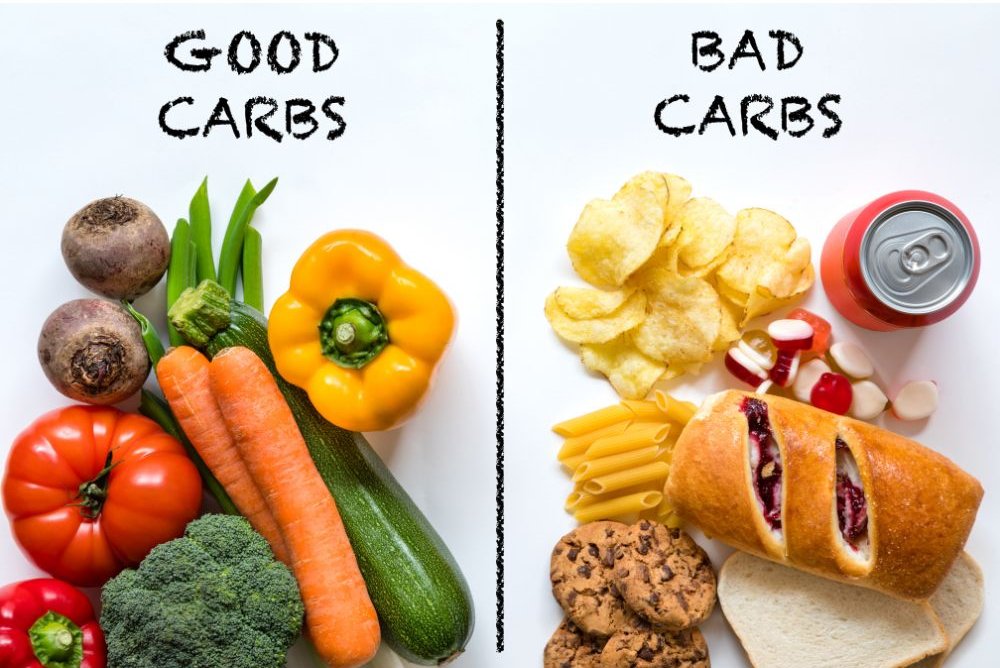Carbohydrates are often labeled as the villain in many diet trends, leading some people to consider eliminating them entirely from their diets. But is it actually okay to never eat carbs? Let’s explore the role of carbohydrates in our diet, the potential effects of a carb-free lifestyle, and whether it’s sustainable or healthy in the long run.
Understanding Carbohydrates
Along with proteins and lipids, carbohydrates are one of the three macronutrients that are vital to health. They serve as a primary energy source for the body, particularly for the brain and muscles during physical activity. Carbohydrates can be classified into two main types:
- Simple Carbohydrates: Found in foods like sugar, honey, and fruits, simple carbs are quickly absorbed and provide a rapid energy source.
- Complex Carbohydrates: Found in whole grains, legumes, and vegetables, complex carbs are digested more slowly, providing sustained energy and essential nutrients.
The Role of Carbs in the Body
- Energy Source: The body prefers to get its energy from carbs. Glucose, derived from carbohydrates, fuels cellular functions, physical activity, and brain health.
- Nutrient-Rich Foods: Many carbohydrate-containing foods, particularly fruits, vegetables, and whole grains, are rich in vitamins, minerals, and dietary fiber. These nutrients are vital for maintaining overall health and preventing chronic diseases.
- Fiber Intake: Fiber, a type of carbohydrate found in plant foods, aids digestion, helps maintain bowel health, and can lower cholesterol levels. Eliminating carbs may lead to insufficient fiber intake.
Potential Risks of a No-Carb Diet
While some individuals may thrive on low-carb or ketogenic diets, completely eliminating carbohydrates can lead to several potential risks:
- Nutrient Deficiencies: By avoiding carbohydrate-rich foods, you may miss out on essential nutrients found in fruits, vegetables, and whole grains, including vitamins A, C, potassium, and magnesium.
- Energy Depletion: The body uses carbohydrates as its main energy source. Without them, you may experience fatigue, reduced physical performance, and mental fog, particularly during high-intensity activities.
- Digestive Issues: A lack of fiber from fruits, vegetables, and whole grains can lead to digestive problems, including constipation and irregular bowel movements.
- Impact on Mental Health: Carbohydrates play a role in serotonin production, a neurotransmitter that regulates mood. Extremely low carb intake may negatively affect your mood and mental well-being.
- Sustainability: A no-carb diet can be challenging to maintain in the long term, leading to potential binge eating or reverting to previous eating habits.
When Low-Carb Diets Can Be Beneficial
While completely eliminating carbs is generally not advisable for most people, low-carb diets can be beneficial in certain contexts:
- Weight Loss: Some studies suggest that low-carb diets can be effective for short-term weight loss, particularly in reducing water weight and fat loss.
- Blood Sugar Control: Low-carb diets may help manage blood sugar levels, making them a potential option for individuals with diabetes.
- Improved Metabolic Health: Some people report improvements in metabolic markers, such as cholesterol and triglyceride levels, when following a low-carb diet.
Conclusion
While it may be possible for some individuals to never eat carbohydrates, it is generally not recommended for overall health and well-being. Carbohydrates are a crucial macronutrient that provides energy, supports digestion, and supplies essential nutrients.
Instead of eliminating carbs entirely, focus on choosing healthy carbohydrate sources. Incorporate whole grains, fruits, and vegetables into your diet while minimizing refined sugars and processed foods. A balanced approach that includes carbohydrates, proteins, and fats is key to maintaining a healthy lifestyle.
As always, individual dietary needs can vary, so consulting with a healthcare professional or registered dietitian can help you determine the best dietary approach for your unique health goals and lifestyle.

